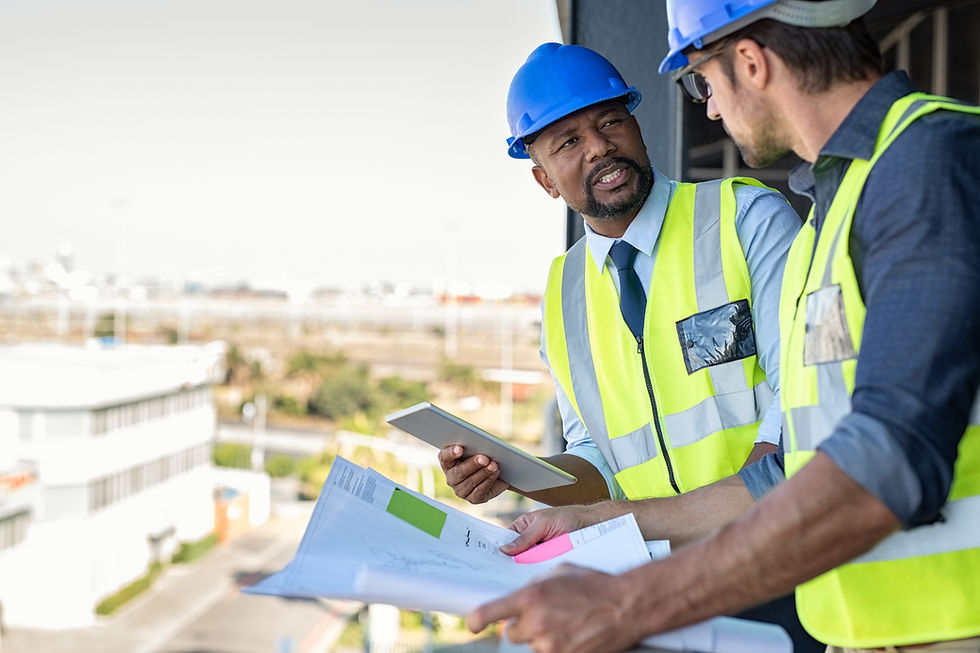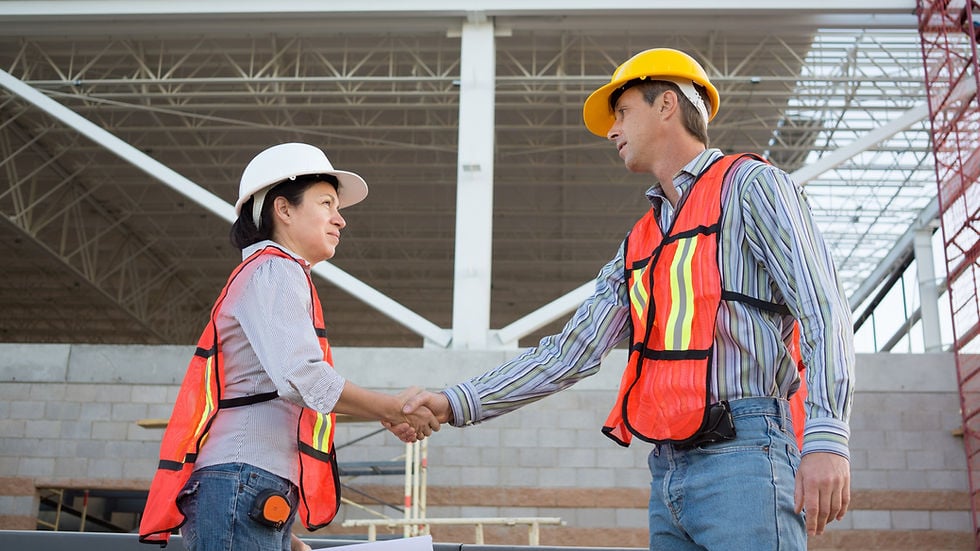You might not consider emotional intelligence to be a requirement for the construction industry, but it's actually becoming an increasingly important part of the job. That's because more and more people are realizing that empathy is only one aspect of emotional intelligence, and understanding how emotions can impact decision-making is becoming increasingly important as companies work to figure out processes and workflows.
In the construction industry, emotional intelligence can be a critical skill for project managers. After all, they're the ones who are responsible for keeping projects on track and ensuring that everyone is working together effectively. A project manager who can read and understand the emotions of those they're working with will be better equipped to manage difficult conversations, identify potential conflicts, and keep projects moving forward.

Below I talk about a few key things that you can do to start developing your emotional intelligence as a project manager or anyone else within the construction industry.
Emotional intelligence 101: what is it and why is it important?
Construction is a notoriously dangerous industry. Every year, thousands of workers are injured or killed on the job. This high rate of accidents is due in part to the fact that construction work is often complex and requires split-second decisions.
Therefore one of the most important skills that construction workers can possess is emotional intelligence. Emotional intelligence (EI) is the ability to be aware and understand emotions, and to manage them in a productive way.

People with high emotional intelligence are able to stay calm under pressure and make clear-headed decisions. They're also better at communicating with others and building relationships. These skills are essential in the construction industry, where workers must often deal with difficult situations and potential conflicts.
High emotional intelligence can help construction workers avoid accidents, resolve disputes, and build a better overall working environment. For these reasons, it's important for construction companies to identify workers who have high EI and to provide training that can help everyone in the industry improve their emotional intelligence skills.
3 ways emotional intelligence benefits the construction industry
1. Emotional intelligence can help construction workers better understand the emotions of those around them. This can lead to better management decisions and avoiding potential safety concerns as a result.
2. Emotional intelligence can help construction workers better manage their own emotions. Through education within the workplace, contractors should encourage their teams to educate themselves on how to better manage their own emotions and provide them options on how to reach out for help so that they feel comfortable asking for help if they need it.
3. Emotional intelligence can help construction contractors better resolve conflicts. Anyone in the industry at some point or another has been involved in one or two heated conflicts. This is where someone with high emotional intelligence is invaluable, as they are able to quickly diffuse situations through developing a deeper understanding of the source of the conflict.

How to develop emotional intelligence skills in the workplace
It is no secret that the construction industry can be a tough one to work in. The hours are long, the work is physically demanding, and the environment can be dangerous. With all of that going on, it can be easy to forget about the importance of emotional intelligence in the workplace.

But emotional intelligence skills are critical for construction workers for a number of reasons. First, they help to create a positive and productive work environment. Secondly, they can help to prevent accidents and injuries on the job site. And finally, they can help workers deal with the stress and demands of the construction industry in a healthy way.

So how can construction workers develop emotional intelligence skills? Here are a few tips:
1. Be aware of your emotions. It is important to be aware of how you are feeling at all times. If you are feeling angry or frustrated, take a step back and try to calm down before proceeding.
2. Don't be afraid to communicate with others. When you are working on a construction site, there is often a lot of communication that needs to take place between workers. Make sure that you are clear and concise when communicating with others, and try to listen attentively as well, especially when it comes to safety and instructions.
3. Be respectful of everyone. In construction it's very common to work alongside a variety of people with different backgrounds and cultures. Therefore it is critical to be respectful of everyone as we all have different values and beliefs, but we all are human at the end of the day. A part of emotional intelligence is being open minded and understanding that everyone is different and sees the world with their own lens. Having this perspective allows you to build stronger relationships and provides for a much greater work environment.
Conclusion
I hope, after reading this article, it is clear how emotional intelligence plays a pivotal role in the construction industry.
By understanding and managing emotions, construction professionals can effectively communicate with clients, resolve conflict, and make sound decisions that contribute to the success of a project. With the ever-changing landscape of the construction industry, emotional intelligence is an essential skill that all professionals must possess in order to be successful.






